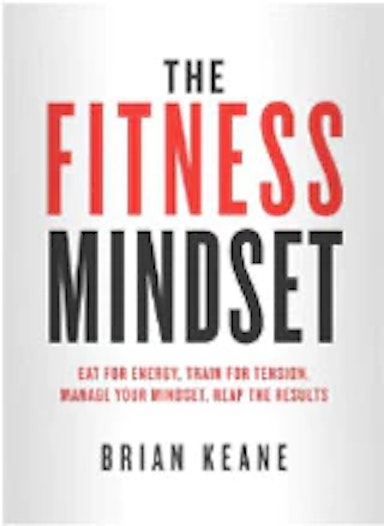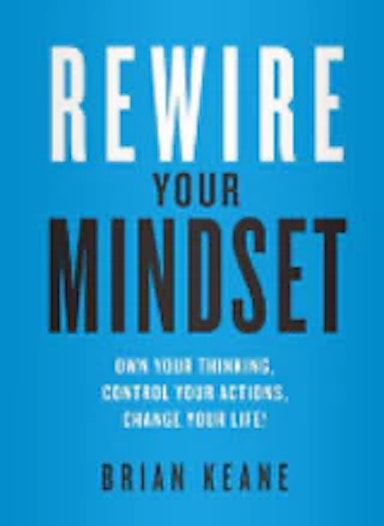Stop Prioritising Stupid Sh*t! (Urgent Vs Important)
- By Brian Keane
One of my most popular business blog posts to date was ‘Are You Busy Or Productive – The Power Of Batching’, here I talked about not being a ‘busy fool’ i.e. running around like a headless chicken, only to feel like you accomplished nothing by the end of the day. Understanding the difference between these two things they can move you from feeling constantly stressed and over worked to productive and super chilled out (I even have a full section dedicated to this at at my full days business seminars).
However, there is one more figurative ‘productive’ leg to add to that table and that understanding the difference between what’s urgent and what’s important. Similar to most things that I write about, this was a huge problem for me for several years and as I’ve said on my podcast many times, “you can only bang your head against the wall so many times before you start to wonder why it hurts”. That’s exactly what happened to me. My days was clogged up with ‘urgent’ things, stuff I had to do right now – emails, reply to messages, save a cat from a burning building (okay, maybe not the last one) but my days would start with me replying to something ‘urgent’ and end with me doing the same exact thing. The end of each day would come and I’d have accomplished nothing but the short dopamine hits from replying to instant messages.
Before I go on, lets have a look at the difference between the two words ‘urgent’ and ‘important’
Webster’s dictionary definition for urgent: requiring immediate action or attention.
Webster’s dictionary definition for important: of great significance or value.
On the face of it, it seems that they’re obviously very different. Being urgent requires immediate action or attention and being important is doing something of great significance or value. How would you even get those two mixed up? Simple. You confuse the two. Well, I confused them anyways.
It wasn’t until I was able to separate and create of list of what is important (working ‘on’ my business – i.e. the things that move it forward, creating valuable content etc.) to what is urgent (working ‘in’ my business’ – keeping it running day to day, putting out fires, replying to emails etc.) was I able to see where I had been going wrong.
From a business standpoint, it can literally be the difference between jumping out of bed every morning to start your day to wanting to pull the blankets over your head when your alarm goes off because you don’t even know where to start (I’ve been there too).
The important/urgent debate serves me in my personal life as well, one of the reasons I mention my inner circle (my five closest people) so often on videos and podcasts is because they fall into the ‘important’ category, everyone else that texts, calls or messages falls into the ‘urgent’ bracket. That’s not to say that they’re not important too, in some cases, they very much are; its just that they don’t get priority over the people closest to me. I’m a big believer that if you look after the little things, the big things take care of themselves and I think that transcends to if you look after the important things, the urgent things will take care of themselves.
There are a few things you can look at that will help you differentiate between the two so I’ll list them below in the hope it helps.
1) Make an ‘important’ and ‘urgent’ list
This was the first thing for me. Similar to the podcast I did on ‘Questions I Regularly Ask Myself’ – for this exercise, I generally classify ‘important’ as things that move my business, brand or fulfilment levels forward in some meaningful way – writing, speaking, creating valuable content etc. Urgent generally falls into ‘reactionary’ stuff – replying to messages, emails, texts etc.
This is how my list looks but feel free to create your own. Just make sure that the important things are moving your business forward. If they are important, they need to get prioritised and done. You will do whatever you priortise. After that, fill the rest of your time with urgent stuff. Its also worth noting that emails, texts and messages all ‘feel’ important (hence why we confuse them), but the sooner you realise that 99% are not urgent (I batch my email for this reason), the sooner you take back control of your day.
Brian’s list of important things:
- Write a blog post
- Edit a chapter for my new book
- Record a podcast interview
- Create sales copy for new seminar
Brian’s list of urgent things:
- Replying to DM’S
- Getting back to people who work with or for me
- Phone calls
- Text messages
I’ve always loved The Eisenhower Matrix when it comes to a visual on urgent vs important

This alongside many other great examples can be found in the international best seller ‘The Decision Book: Fifty Models for Strategic Thinking’ by Mikael Krogerus and Roman Tschappler
2) Separating creative from reactive
Another way I differentiate between urgent and busy is separating my creative work from my reactive work. Anything that needs to get created from nothing (blog posts, book writing, podcasts, videos etc.) and normally requires more creative effort on my part take priority for me. I generally do this early in the day (for example its 05:28 on Thursday the 10th of January 2019 as I type these words). The reason for doing it early is three fold:
- I’m fresher and generally more creative in the morning (after a cup of coffee)
- The rest of the world is asleep (so I don’t get distracted)
- It allows me to be reactive later in the day once my most important task for the day has been completed.
Which leads me to my next point ‘finding your one thing”
3) Prioritise your ‘One Thing’
Gary Kelleher has a great book called ‘The One Thing’ which basically means that if there’s generally one thing that we need to do every day, that if completed would make the entire day a success. For me it might be writing a blog post, editing the chapter of a book, recording a podcast etc. for you it might be creating content for your social media channel, signing up two new clients, whatever it is, if it gets done, the whole day was a success. If you find yourself with 10-50 things in your ‘to do’ list, I recommend reading this book.
4) Get clear on the end goal
You can’t hit a target you cant see and as Yogi Berra said it “ If you don’t where you are going, you might end up someplace else’ – if you let your day happen by default, its probable that you’ll end spending 90% of your day on urgent stuff, never really moving anything forward.
The reason I send out questionnaires to people attending my full day business seminars with questions like ‘what is your biggest struggle right now’ and ‘where do you want your business to be in 6 or 12 months in an ideal world’ is down to getting clear on where it is you are (your struggle or current glass ceiling) and where you want to go (you ideal work world scenario). After that its about doing the right things every day that moves you from current struggle to ideal scenario. It really is that simple. Its not easy, you still have to do the work but it’s that simple. Ordinary things done consistently well lead to extra ordinary results.
In conclusion, similar to busy vs. productive, I confused urgent and important for so long. Yes, this can transform your entire business and the cumulative effect of doing the right things over time leads to incredible results but it can also serve as a foundation pillar in your personal life. It has with me anyways. As I get older, I realise that most of my anxiety and stress were self imposed prisons I put on myself and in my case anyway, it gets worse when I let things happen by default and not by design. Now who I spend time with or what I spend my time on is much more intentional. That comes down to being clear of the difference between who or what is important and who or what is urgent. Don’t confuse the two. They’re not the same thing.


